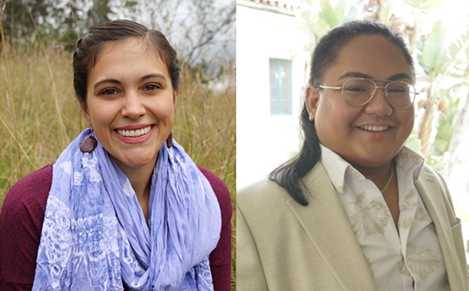Not Your Typical Tobacco Research Project: TobExA, a Community-Academic Partnership
Housed within SDSU’s Action Research on Community Health Equity and Stigma (ARCHES) Lab, the community-based participatory research study Tobacco Harm Reduction through Expressive Arts (TobExA) is taking shape. This project aims to partner with San Diegan youth experiencing homelessness and housing instability as co-collaborators as well as San Diego Youth Services to design a novel intervention to promote resilience among youth as they reduce their tobacco use.

Alana Lopez and Andy Lim, two students in the UCSD/SDSU Joint Doctoral Program in Health Behavior, have taken the lead on designing the project’s novel approach to youth engagement. “We spent a lot of time preparing materials and planning for how we would make sure that it’s easy and comfortable for youth collaborators to work with us [in this upcoming phase],” Andy explained. TobExA is now approaching the next phase where youth experiencing homelessness will be brought into the collaborative fold to design the intervention. As Andy is preparing to lead one-on-one interviews with youth for this active recruitment, they reflected, “It’s exciting to see how these plans are coming closer to fruition.”
“We initially weren’t planning to involve Spanish speakers because we weren’t sure we had the funds to do justice to their unique needs,” Alana recounted. However, Alana and staff at San Diego Youth Services advocated for their inclusion to ensure that their unique needs can be met. “Even though it means more work on our end,” Alana acknowledged, “I know including perspectives from Spanish-speaking youth will strengthen our project in the end and allow us to develop something meaningful for this population as well.” As one of the bilingual members of the team, Alana has taken the lead in creating materials and gathering data in Spanish.
The primary partner organization in this effort has been San Diego Youth Services, which provides a wide variety of services including behavioral health intervention, foster care, and homeless housing support for youth aged 12-25. “It’s been so enjoyable working with the staff ,” Andy emphasized. “The strength of community-based participatory research is that community partners are engaged throughout the entire research process — from the identification of a research question to data collection to dissemination.”
“The goal of this project is not simply to create a tool/intervention, test it once, and then walk away as funding dries up (which is the harsh reality of much public health intervention research),” Alana explained. This aspect has been particularly important to consider as TobExA approaches its last year before the academic researchers’ period of contribution ends and they must step off the initiative. “We need to create something that [our partners both] can and want to sustain even after our funding is spent.”

